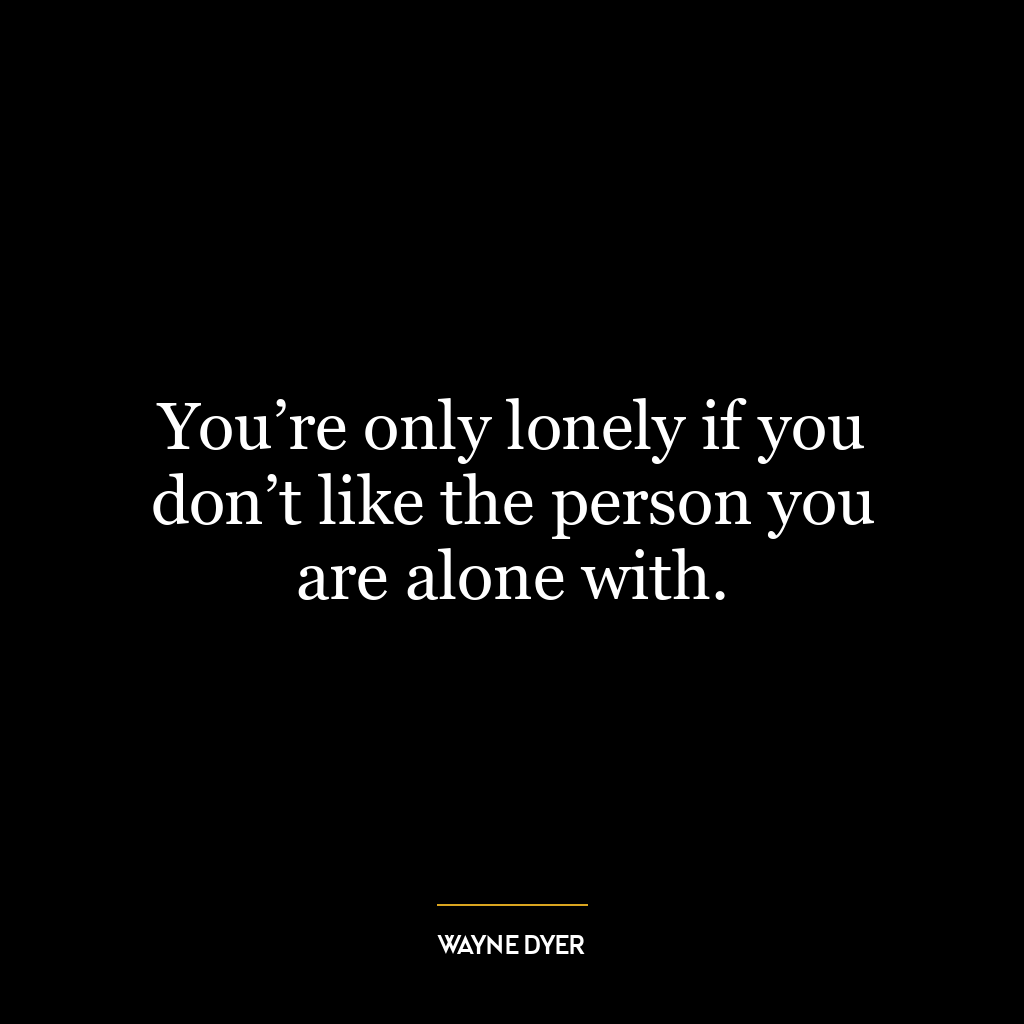You’re only lonely if you don’t like the person you are alone with.
This quote implies that the feeling of loneliness is not a result of physical solitude, but rather a reflection of one’s relationship with oneself. Essentially, if you enjoy your own company and have a positive self-image, you are less likely to feel lonely when you are alone. Conversely, if you have a negative self-image or don’t enjoy being alone with your thoughts, you may feel lonely even when you are by yourself.
This idea can have profound implications for personal development. It emphasizes the importance of self-love and self-acceptance. In order to feel content when alone, one must first cultivate a healthy relationship with oneself. This involves acknowledging one’s strengths and weaknesses, embracing one’s uniqueness, and cultivating self-compassion.
In today’s world, where we are often bombarded with external stimuli and societal pressures, it can be easy to neglect this relationship with oneself. We may find ourselves constantly seeking external validation, or comparing ourselves to others, which can lead to feelings of inadequacy and loneliness.
However, this quote suggests that the key to overcoming loneliness lies within us. By learning to enjoy our own company, we can become more self-reliant and less dependent on others for our happiness. This not only reduces feelings of loneliness, but also empowers us to lead more fulfilling and authentic lives.
Furthermore, this idea is particularly relevant in the context of the COVID-19 pandemic, where many people are spending more time alone due to social distancing measures. By embracing solitude and fostering a positive relationship with oneself, we can transform this challenging situation into an opportunity for personal growth and self-discovery.















